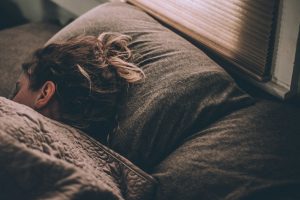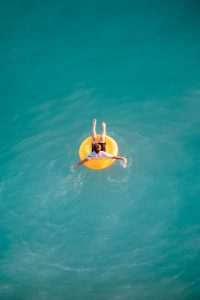Brakes are not just a pause in your working day. They are a source of rejuvenation. They separate us from unmotivated people, help us avoid feeling shuttered at the end of the day, and improve our productivity and creativity. Why are so many people against taking breaks and making them meaningful?
The productivity lie tells us that every minute of the day is precious and cannot be wasted.
If we have a break, we will drop the ball.

Then we can talk about how we take holidays and vacations. Only a few know how to rest correctly, completely, and with a sense of necessity.
When I was a small girl, I observed that my hardworking grandmother had spells of sitting on the bench under the tree or on the porch.
She would sit, stare into the space, and think. Then, she was done and ready for more work. She is 95 and doing great.
When was the last time you sat down and stared into space?
Breaks give your brain space to sharpen your attention and activate executive function.
The break is the opposite of work or entertainment. It is a total stop to everything, which might, in the long run, speed up your nervous system. If you work physically, the break should turn off your body but not your brain. When you do highly intellectual work, the break should switch off your brain and activate your body.
During the day, the break could be as simple as standing up from the computer, making coffee, patting a dog or cat, looking through the window, walking and listening to birds, or cycling to the shop and back.
The secret of a good break is to do the opposite of what has been done for the last hour.
I am also a strong advocate for power naps. Laying down for 20 minutes, allowing your brain to switch off but not go into a deep sleep, improves alertness and cognitive performance.
I also love the concept of a coffee nap. Drinking a black coffee and taking a 20-minute nap does not affect my short sleep. Because caffeine takes up to half an hour to have an alerting effect, your ability to fall asleep will not be affected by it. On the contrary, you will feel much more alert to the effects of caffeine when you wake up, empowering you to tackle the rest of your day.
The other thing about breaks is the art of having (un) orthodox breaks. Many exceptionally high-performing but very anxious clients cannot have a holiday without a tight plan of attractions—hiking, sightseeing, theme parks, and museums.

One of my clients (the client was asked if I could share his experience) wanted to improve his anxiety levels, and after a few sessions, he decided to go for what I call an orthodox holiday.
He rented an Airbnb in the most boring coastal English town and stayed there for a week. He slept for the first two days with nothing to do (he did not take his laptop). He reported only waking up for food and to go to the toilet. After that, he just started walking around without any direction or purpose, which he found at the beginning anxiety-provoking, but then his brain, as he said, switched off.
When he emerged from brain fog, he started to think about small activities he could be doing, like watching the sea or sketching seagulls. After the holidays, his stress dropped noticeably, and he discovered many dynamics at work that he was uncomfortable with.
Of course, he returned to being stressed and overwhelmed after a few weeks, but by then, he knew what he should be doing. The longer orthodox break gave him the opportunity for recalibration and motivation to look for a new job.
For free-of-charge consultation, call 07930826923
#breaks #ThePowerofBreaks #Rejuvenation #CreativityandProductivity #thepovoftherapist #therapysessions #anxietyandbreaks
